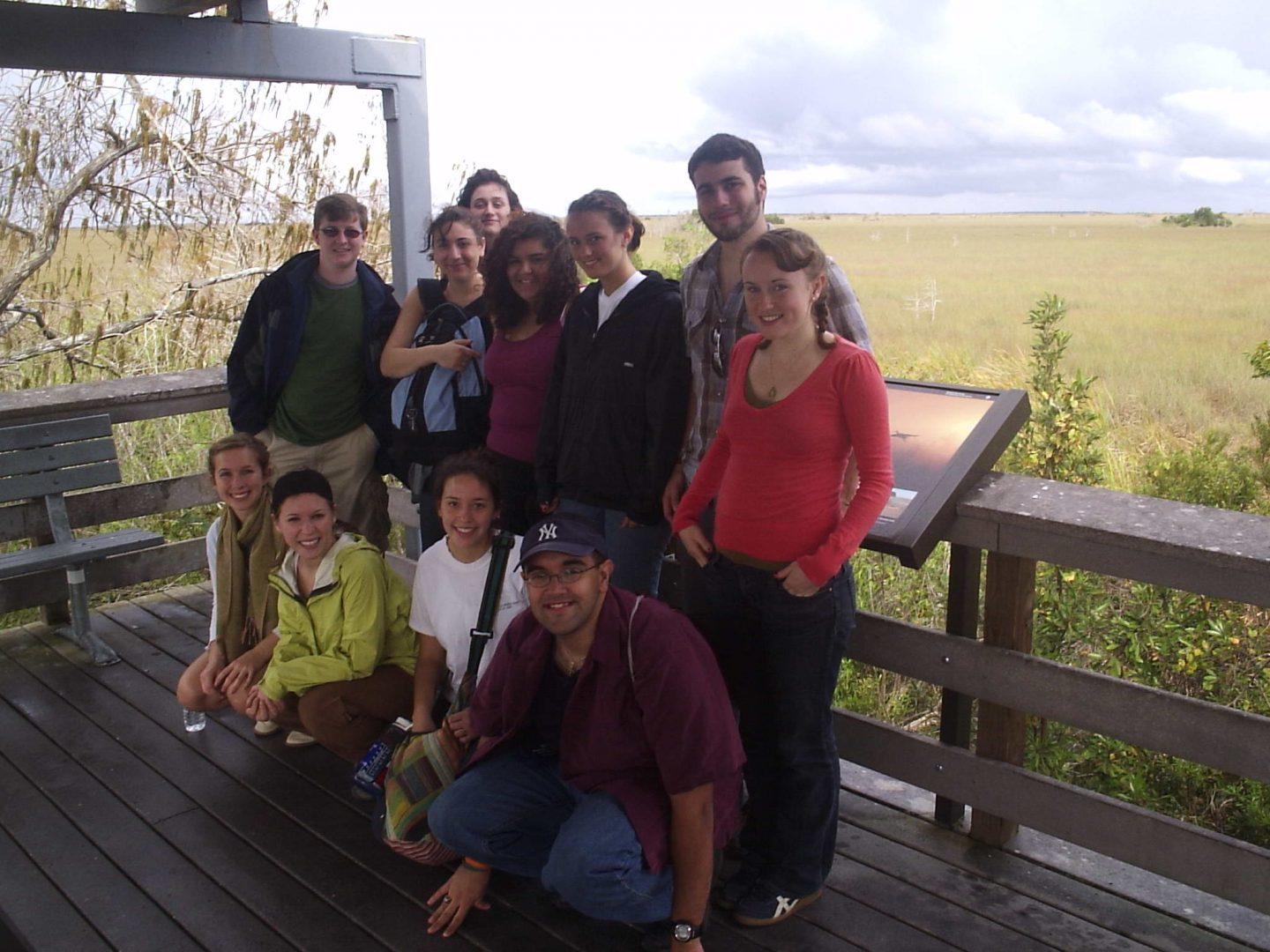The Path to Understanding Human Dignity
Spending Winter Break with GO! Florida
June 1, 2011

Published: January 31, 2008
In a crowded bedroom after a long and exhausting night, I sluggishly stared in the eyes of my exhausted GO! Florida teammates, wondering what our reflection would be for the night. My Global Outreach (GO!) trip leader, Lauren Guidice, lit a candle, symbolizing the start of reflection. While the candle started to burn, Lauren started the reflection with a question that perplexed me for the rest of my two-week trip: “What is human dignity?”
The question is not one that comes up in everyday conversation. It is also a question that cannot be easily answered without taking time to dissect it. During my two-week Global Outreach trip to Immokalee, Fla., over winter break, I wrestled with the question of maintaining human dignity in dire straits with each organization we worked with.
Before the trip, most of the GO! team was excited to work with the Coalition of Immokalee Workers (CIW), a small community-based organization that works to ensure that human rights are not violated in the fields. Started by migrant farm-worker Lucas Benitez, the CIW has fought and won some David vs. Goliath-like battles in its 15 years of existence, including those against corporate giants like Taco Bell and McDonalds. The CIW also works for fair wages for other migrant farm-workers as well as for better living conditions, so for all of these reasons, we couldn’t wait to start.
The CIW work to achieve these goals through many campaigns, including its A Penny More campaign. Each migrant farm-worker earns 45 cents for every bucket they fill up. If the worker gets paid an extra penny per bucket filled, that worker’s wages double in size.
In our presentation with CIW, our team was able to hear and witness the living conditions of the migrant workers. Many of the workers wake up at around 4:30 a.m. to stand in a parking lot, ready to be picked up for work. When they return at the end of the day, they come home to dilapidated trailers that are only able to house 4 to 6 people comfortably.
Yet, due to rent rates of $400 per week ($1800 every month), the workers fill up these rundown trailers with as many as 12 people each. Whether protesting for fairer wages or more affordable housing, the CIW labors so that workers can support both themselves and their families.
In addition to CIW, for the first week of the trip, we stayed, slept and worked hand-in-hand with the Immokalee Friendship House. IFH works both as an emergency and temporary homeless shelter and is set up to prepare for any emergency that happens within the area, including the sub-freezing temperatures we endured in Florida during our stay there.
On Jan. 2, night temperatures near Immokalee fell to 32 degrees and below. Though 32 degrees is a typical winter night for most New Yorkers, frigid temperatures in Florida are a rare occurrence, even in January. Strong influxes of homeless men came through the doors of IFH, looking for shelter, food and a sleeping bag for the night.
In the face of an emergency, the IFH did not fail to address each man’s request with respect. Each man was addressed as a “client.” Whether it was handing out blankets on the streets or finding a man a warmer place to sleep for the night, the IFH made sure every concern the men had was taken care of.
In fact, it was after that long and exhausting night that our team convened in a crowded bedroom and attempted to answer the question: “What is human dignity?”
After working with these organizations, as well as Habitat for Humanity, Harvest for Humanity and various others, I wonder if it really is possible to answer that question. The concept of human dignity cannot be answered with an all-encompassing definition. Not one organization can fully cover every aspect of what makes a human feel respected or worthy. However, organizations like the CIW and IFH can continue to work to make sure each of their clients is treated with respect, despite his or her weaknesses.
I may not have come closer to defining human dignity, but at least, through GO! Florida, I understand how it can be restored: by treating each person as they are, a human being, just like me.











